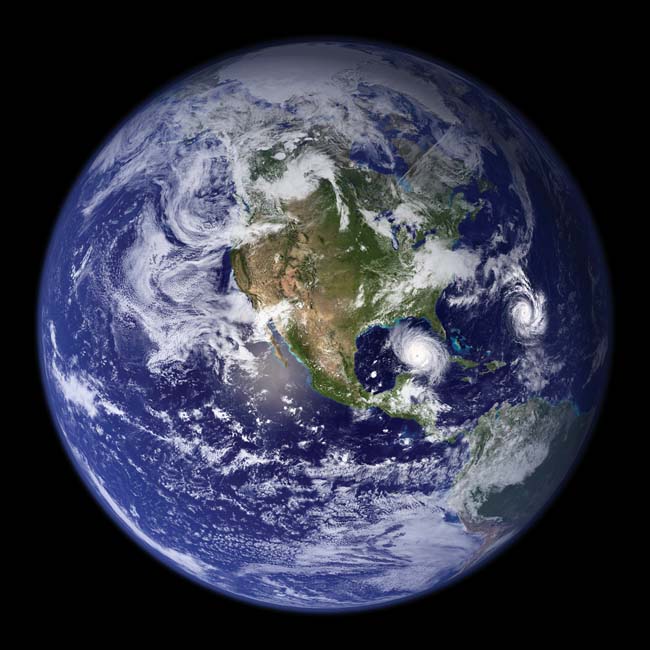
Natural Resource Scarcity is a Threat to Our Security (Part 2)
Recently, I wrote a piece on water insecurity as a climate-related threat; now I will discuss food scarcity and broader resource scarcity, mostly as related to agriculture, oil and minerals. Such scarcity has a high potential to cause conflict. The U.S. intelligence agencies warn that dwindling natural resources are likely to trigger major conflicts, as “demand for food, water, and energy [grows] by approximately 35, 40, and 50% respectively” by 2030.
Food Scarcity
Food scarcity is inextricably linked to water scarcity. A Stimson Center-Brookings Institute report claims “growing water demand, decreasing water availability, and deteriorating water quality affect environmental quality, food security, municipal infrastructure, economic development, and overall human security….” Agriculture is one of the most water-intensive industries, accounting for 70% of water withdrawals globally. As droughts become longer and more common, food production will be put under increased stress. There could be an increase in rural to urban migration as farmers are forced to look for alternative work. This economically-spurred migration could lead to increased competition for employment, housing, and other resources and will heighten tensions within countries.
Food security will be influenced by more than just water scarcity. The Emergency Capacity Building Project, which aims to improve humanitarian response time to natural disasters, argues that “shifting weather patterns and extreme weather” will affect the availability, stabilization, and access to food sources. Poor populations will be forced to sell assets, migrate to find work, and go ever further in their search for food as the environment continues to change.
An example of food scarcity was seen leading up to the Arab Spring in 2011. The worst drought in the century impacted the world’s largest exporters such China, Russia, Ukraine, and Canada in 2010. The resulting scarcity in wheat, combined with a Russian governmental decision to halt exports, led to a 20% increase in the global price of wheat. When combined with growing social and political unrest in Egypt, the price increase was an influencing factor in the revolutionary overthrow of Mubarak and others. This could just as easily happen again in other countries as water becomes less abundant, impacting food security. E3G argues that over 70% of the population will have moved to urban areas by 2015 in the Middle East and North Africa region, putting further stress on already tense situations.
Broader Resource Scarcity
Land is a major factor in natural resource scarcity. As countries face population booms and depleting water and food resources, they search for innovative ways to access resources both at home and abroad. Purchases by grain importers, such as China and India, allow countries to add to their natural resources for farming; this lessens food insecurity for the purchaser. The World Bank reported that at least 140 million acres were purchased or leased during 2012 to supplement national resource production.
Broad natural resource scarcity has already contributed to a number of global conflicts. The UNEP’s “From Conflict to Peacebuilding” report approximates that 40% of civil wars have been associated with natural resources. Ore, oil and gas have spurred conflict across the African continent in the past century. Diamonds fueled conflicts in Sierra Leone, Angola, and the DRC while access to oil has been a sticking point in the normalizing of relations between Sudan and South Sudan.
Scarcity of natural resources can also be seen as an issue in regions outside Africa, particularly in the form of underwater oil and gas. There is currently tension between China and many of its neighbors over water rights – China and Japan are in dispute over the East China Sea; China, Malaysia, Vietnam, and the Philippines are in dispute over the South China Sea. The British and Argentinean governments are again disputing sovereignty of the Falkland Islands. There is a scramble by regional powers for access to the Arctic’s resources.
Conclusion
There are a number of policies that could be put in place to mitigate the threat of natural resource scarcity. Further research could be done on the international costs of carbon to the environment and humanity in general; a wider reforestation policy could help combat soil erosion and decrease food insecurity; regional bodies, such as the Arctic Council, could be treated with greater deference to decrease the risk of racing for resources; climate mitigation policies could be integrated into conflict prevention and resolution strategies to cut down the future risks of natural resource inspired violence.
As the environment continues to deteriorate due to increasing temperatures and extreme weather events, natural resources will become more scarce. If the past is any indication, this scarcity could be a factor in more episodes of violence.






[…] Natural Resource Scarcity is a Threat to Our Security (Part 2) […]